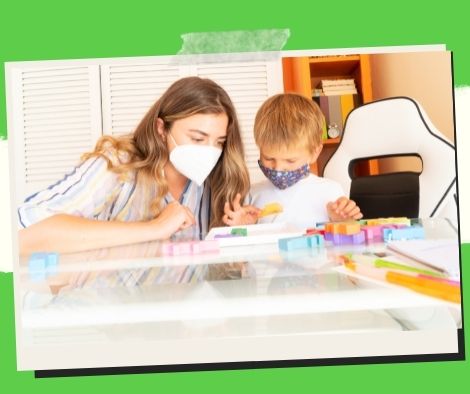
Recreational vs. instructive after-school programs
So, your child is becoming agitated, which is causing you to become agitated. You’re investigating after-school programs – anything that will keep him occupied for a few life-saving hours now that he has more time than he needs! Most after-school activities can be divided into three categories: recreational, instructional, and social. The final stage usually occurs when your youngster is a little older and capable of expressing his own preferences.
Educational exercises are designed to expand your child’s knowledge. His general awareness, comprehension, and memory are all addressed, and he is taught a variety of ways to assist him to enhance one or all of these. After-school programs such as intense memory training and fast mathematics are educational. There are academic programs that will go over your child’s homework and classwork with him or her and assist them to develop a better understanding of the many subjects. As a result, academic programs have a distinct advantage over fun and games, particularly if parents believe their child has a significant amount of catching up to do.
Sports and games, as well as fine arts and painting, are examples of recreational activity. The main goal is to have a good time. As a youngster progresses through the grades, classes get increasingly competitive. To encourage the youngster, a variety of sporting events, tournaments, and theatrical plays are held.
When we weigh the pros and cons of the two types of activities, I believe the recreational programs have the upper hand. To begin with, youngsters do not enjoy studying unless they are genuinely interested in something. The majority of academic programs are standardized courses with limited flexibility. They have a broad goal and a well-defined methodology. The child may become bored after a few hours at school. More research may overwhelm him and cause him to become upset. Here, burnout is a distinct possibility.
Recreational programs give a welcome diversion from the humdrum of schoolwork. The mental and physical exertion provide the youngster a fresh lease on life and a gratifying sense of accomplishment. He learns social skills, discipline, and patience through group activities. It is a recognized fact that pupils who participate in extracurricular activities receive higher marks than those who do not. It’s possible that closing your textbooks and playing a game is the greatest method to deal with your academics.
Regular evaluation, regardless of the program you choose for your child, is critical to his or her progress. You’ll need to keep track of the child’s improvement. If your child’s progress isn’t meeting your expectations, remove him or her from the program. The youngster should also be able to refuse an activity if he or she becomes bored with it. In general, programs that blend instructional and fun elements are most suited for younger children. Children can study while having fun in this manner.
Save/Share this story with QR CODE
Disclaimer
This article is for informational purposes only and does not constitute endorsement of any specific technologies or methodologies and financial advice or endorsement of any specific products or services.
📩 Need to get in touch?
📩 Feel free to Contact NextGenDay.com for comments, suggestions, reviews, or anything else.
We appreciate your reading. 😊Simple Ways To Say Thanks & Support Us:
1.) ❤️GIVE A TIP. Send a small donation thru Paypal😊❤️
Your DONATION will be used to fund and maintain NEXTGENDAY.com
Subscribers in the Philippines can make donations to mobile number 0917 906 3081, thru GCash.
3.) 🛒 BUY or SIGN UP to our AFFILIATE PARTNERS.
4.) 👍 Give this news article a THUMBS UP, and Leave a Comment (at Least Five Words).
AFFILIATE PARTNERS

World Class Nutritional Supplements - Buy Highest Quality Products, Purest Most Healthy Ingredients, Direct to your Door! Up to 90% OFF.
Join LiveGood Today - A company created to satisfy the world's most demanding leaders and entrepreneurs, with the best compensation plan today.



 Business Technology, Finance Technology & Information Technology
Business Technology, Finance Technology & Information Technology





